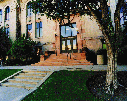| Department of Mathematics, University of Utah | |||||||

|
|

|
|||||
| Department of Mathematics, University of Utah | |||||||

|
|

|
|||||
You will need to take some basic mathematics courses as part of your degree. The purpose of this page is to help you decide which courses to take and to point you to some additional help that is available.
The Mathematics department offers two courses that can be used to satisfy the Quantitative Reasoning requirement for students who do not plan to take more advanced mathematics courses. One is Mathematics 1030, Introduction to Quantitative Thinking (QA). In that course you'll do a number of projects where you use mathematics to study topics of general interest (like population growth, taking out loans, or planning for retirement), and then write a report on your work and findings. After taking that course you should be able to think rigorously and incisively about many problems that you'll encounter in pursuing whatever you major turns out to be. Many problems arising in life involve uncertainty. There is a branch of mathematics called statistics that deals with how to make sense of partial or incomplete data. The course Mathematics 1040 provides an Introduction to Statistics (QB). A large part of it consists of taking data and statements from current news and analyzing them critically. As in 1030, what you learn in that course should be useful in whatever studies you pursue at the University.
To be able to participate fruitfully in 1030 or 1040 you need to know some basic algebra, as it is covered in the course Mathematics 1010, Intermediate Algebra.
Which course should I take?
Just what mathematics courses to take depends on the mathematics you already learned in High School, and exactly what you plan to study at the University of Utah. Any decisions you make are personal and individual, but we suggest the following guide lines based on your SAT or ACT score:
Since you will be using mathematics in virtually any field of study it is important that you take your Mathematics classes early in your career as a student i.e., during your first year if at all possible. Be aware also that all advanced mathematics courses build on their prerequisites. To make the best use of your time you should take a mathematics course when the prerequisites are still fresh in your mind, so ideally you should take any mathematics course in the semester following the semester during which you took the prerequisite. Studying mathematics is like learning to play a musical instrument, you do better if you work steadily and regularly. It's also a lot of fun and a worthwhile enterprise!
The Department of Mathematics and the University of Utah offer a number of services to help you do well in your classes. Some of these are listed here.
Tutoring.
Mathematics Library.
The Mathematics Library is located in room 120 of the John Widtsoe Building. You can check out books, and study and work here. For opening times call 581-6208 or 581-6273.
How to be a GREAT Math Student.
There is a book by Richard Manning Smith, ``Mastering Mathematics --- How to be a GREAT Math Student'', 3rd edition, Brooks/Cole Publishing Co., 1998. You can look at a copy in the Undergraduate Commons or in the Math Library.
The world wide web (www).
A great deal of information, including current class schedules is available on the world wide web. Start at our home page.
You may be particularly interested in a study guide written specifically for undergraduate students taking mathematics courses.
Computing Labs
If you are a student in any of our classes you automatically receive a computing account on our systems. For information on activating that account call 581-5257 or 581-5252. You can use our computing facilities in our computer lab located in South Physics 205.
The Math Office.
The offices of the Department of Mathematics are located in room 233 of the John Widtsoe Building. Drop by if you have any questions. Our phone number is 801-581-6851, our fax number 801-581-4148, and you can send e-mail to Les Glaser or Peter Alfeld.